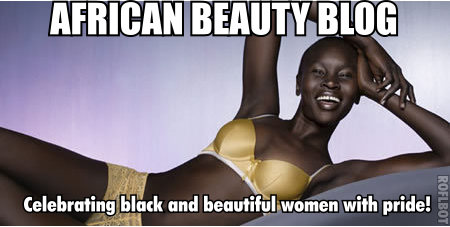
ZULU VIRGINS IN THE REGALIA OF THE REED DANCE.
I have put some countries in Africa as "No Go" Areas for me in order to maintain my chastity and retain my sanity, by keeping away from impressionable and vulnerable girls and women.
I am still in retreat on Bonny Island to escape from the sexual harassment of nubile maidens and young women in the villages, urban towns, and cities in Nigeria. And since January 1st, 1999, I have not slept with any girl or woman.
The invitations to come to South Africa have been turned down, because of the pornographic reports from my randy cousins and friends in South Africa on their sexual escapades among the native people. The recent news that the king of Swaziland just lifted the ban on sex for girls below 18 did not excite me. Why should girls under 18 be harassing their king to lift the ban on sex?
They said the young king who is 36 years old just added a new bride to his harem. And she is only 17. A virgin. So, he was compelled to lift the ban on sex.
I have always heard that South African girls are very sexy. And I am not surprised, because I have been informed since the 1970s when the celebrated "Ipi Tombi" of South Africa came to Nigeria for the FESTAC '77 and they were very sexy in their choreography. And when they left, my high school, the St. Gregory's College did the Nigerian adaptation of the "Ipi Tombi" musical with the selected school girls from the Holy Child College. The girls were naughty and made fun of me for not messing around with them. And when I wanted to organize my own dance troupe, 22 of the girls signed up and only 4 boys joined from my school.
I have to live like a monk to discourage the girls and women from coming. But, they kept on coming. There were over 30 girls coming to visit me. But, I only visited three of them after so much persuasion.
Beauty is one of my greatest attractions and having so many beautiful models as my friends and companions became the talk of the town until I fled to the Bonny Island. And even here in my retreat, two young women have found good excuses to visit me. But, I have not fallen for their temptations.
Here is the report on the "Umkhosi WoMhlanga: The Zulu Virgin Dance."
BACKGROUND
Once a year, in the heart of South Africa's Kingdom of the Zulu, thousands of people make the long journey to one of His Majesty’s, the King of the Zulu nation's royal residence at KwaNyokeni Palace. Here, in Nongoma, early every September month, young Zulu maidens will take part in a colourful cultural festival, the Royal Reed Dance festival - or Umkhosi woMhlanga in the Zulu language.
For visitors to KwaZulu-Natal, South Africa's most Popular tourist destination, the Reed Dance festival Offers the unique opportunity to experience the natural beauty and majesty of the Kingdom of the Zulu, combined with the vibrant spectacle of Zulu cultural life. The road to the Reed Dance festival runs north from the city of Durban, and winds through the green lushness of the North Coast sugar-belt, skirting through the Kingdom's world-renowed wildlife reserves of Zululand and Maputaland.
Finally, it leads into the gently rolling hills and valleys of Zululand, a landscape rich with the silent memories of the heroic clashes of the Anglo-Zulu War, which took place more than 100 years ago.
Steeped in the history of the rise of the Zulu kingdom under the great King Shaka, the Reed Dance festival has been tirelessly celebrated by countless generations, and attracts thousands of visitors from throughout the country and from across the world. A dignified traditional ceremony, the Reed Dance festival is at same time a vibrant, festive occasion, which depicts the rich cultural heritage of the Kingdom of the Zulu and celebrates the proud origin of the Zulu people.
RITUAL CELEBRATION
The Reed Dance is also a celebration of the Zulu nation and performs the essential role of unifying nation and the king, who presides over the ceremony.
The festival takes its name from the riverbed reeds, which are the central focus of this four-day event. The reed-sticks are carried in a procession by thousands of young maidens who are invited to the King's palace each year. More than 10 000 maidens, from various communities throughout the province of KwaZulu- Natal, take part in the Reed Dance ceremony, with the rest of the Zulu nation helping them to celebrate their preparation for womanhood.
It is a great honour for the young women to be invited to take part in the Reed Dance ceremony, and its also a source of great dignity and pride for their families and communities.
According to Zulu traditon, only virgins are permitted to take part in the festival to ensure that they are ritually 'pure'.
COLOURFUL OCCASION
The Reed Dance festival is a solemn occasion for the young women, but also an opportunity to show off their singing, dancing and beadwork, the fruits of many months of excitement and preparation.
The women of KwaZulu-Natal make some of the finest beadwork in Africa, and the Reed Dance is an especially vibrant and colourful occasion on account of the rich beadwork on display. For visitors to the Reed Dance, this exquisite handiwork can provide a unique souvenir or gift to take home.
From each region in the Kingdom comes a distinctive craft tradition, and the colours, patterns and styles of the beadwork luxuriantly displayed by the young women, as both ornaments and clothing attest to the region of origin of the craftwork.
HANDING OVER THE REED
As the Reed Dance ceremony begins, the young women prepare to form a procession led by the chief princess. One of the daughters of the Zulu King is also the leader of the group of maidens as they go through this important rite of passage.
Each maiden carries a reed which has been cut by the riverbed and it symbolizes the power that is vested in nature. The reeds reflect a deep mythical connection with origin of the Zulu people, where, tradition tells us, the original ancestor emerged from a reed bed.
In everyday use, these reeds are the building material For the typical domed or beehive hut, iqhugwane, which is found particularly in rural homesteads throughout KwaZulu-Natal.
Zulu mythology has it that if a young woman who is not a virgin takes part in the Reed Dance ceremony, her reed will break and embarrass her in full public view!
And still, today an expectant hush falls on the crowd as the chief princess is the first to choose a reed. Shouts of joy and celebration greet her as the reed remains intact, and, with bated breath, each of the young women takes it in turn to choose a reed.
Accompanied by jubilant singing and dancing, the stately procession winds its way up the hill to the palace entrance where the king awaits, flanked by his royal regiment.
As leader of the group of young women, the chief Princess kneels down before the king and presents him with a reed to mark the occasion, before joining the young women in a joyful dance of tribute to the king.




